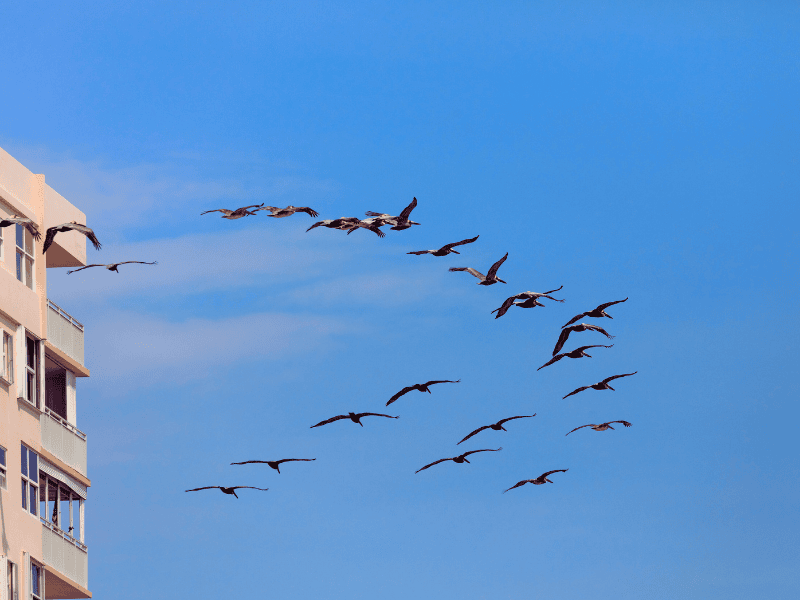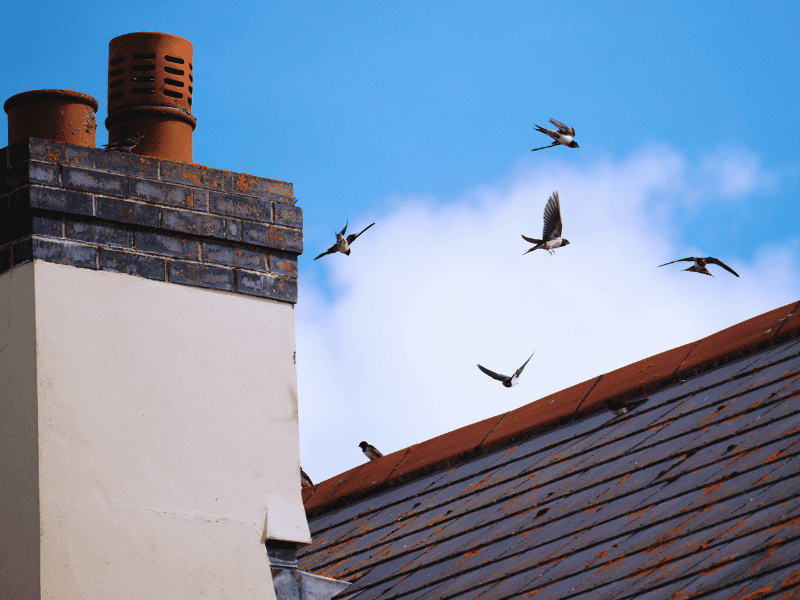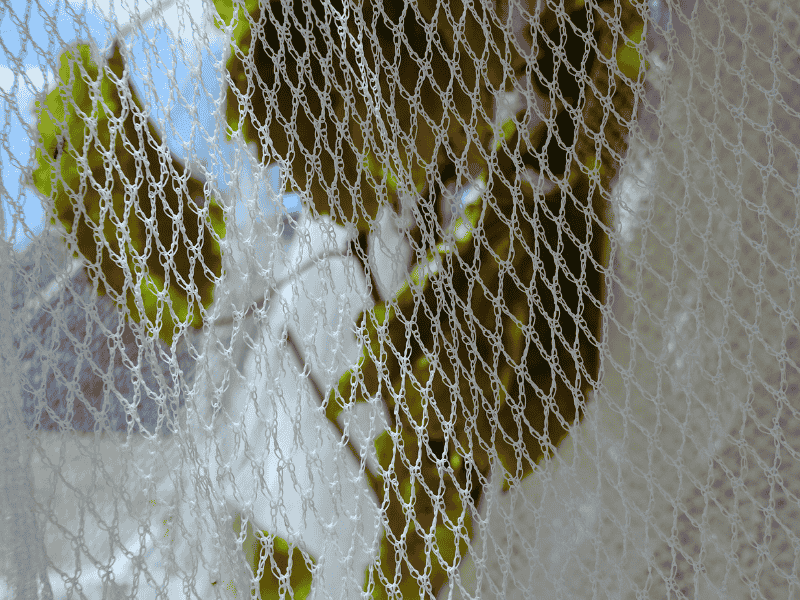If you are wondering How to Keep Birds Away from Your House then you are at the right place. Birds can be gorgeous creatures however, when they intrude into your property they could cause noise, damage, and health issues. When they nest on your roof, gnaw against windows, or drop drops on the property or in your yard, taking proactive steps is vital. Here’s a complete guide to keeping birds out of your home.
Why Birds Can Be a Problem
Before you can address the solutions prior to tackling the solutions, it’s important to know the causes of problems that birds may create:

Damage to property
Birds may damage wood buildings, roofing tiles and window sills. This can lead to damage in the course of time. Certain birds, such as woodpeckers can also bore holes in walls, which can lead to expensive repairs. Starlings and pigeons are renowned for their nests in roof crevices. This could weaken the structure and lead to the deterioration of structures for a long time. Woodpeckers and other species can cause damage, here’s how to prevent birds from making holes in your house. Droppings of acidic nature can cause damage to paint, metal and other substances which can cause the destruction of property. If Birds are stuck in your warehouse refusing to leave and you want to get rid of them, then check out our blog How to Get a Bird Out of a Warehouse.
Health risks
Bird droppings are a source of harmful bacteria, fungi and parasites that could cause skin infections, respiratory problems as well as other illnesses such as salmonella and histoplasmosis. The inhalation of dried bird droppings could be especially harmful for those who have weak immune systems. Furthermore, birds’ feathers and nesting materials may be carriers of lice and mites, which can invade people’s homes and trigger allergies or skin irritations.
Noise Pollution
Certain species of birds, such as crows, pigeons, and starlings, emit loud sounds particularly in the early morning or late in the evening, disrupting peace and sleep. This is especially problematic in urban areas, where large numbers of birds congregate on the roofs, trees as well as power lines causing constantly squawking, chattering, and even yelling. Certain birds, including mockingbirds, can be heard singing loudly during the night, causing disruption to sleep patterns
Blockage of Vents and Gutters
Birds frequently build nests inside vents, chimneys and gutters, creating obstructions that can result in flooding, fire dangers and a decrease in airflow. The nesting material can block ventilation systems, which can reduce the quality of air inside and increasing the danger of carbon monoxide accumulation in homes that have gas appliances. Furthermore, gutters that are blocked could lead to water overflows, which can lead to the growth of mold, roof leaks or foundation damage.
Damage to the garden and crop
Birds may eat your garden’s fruits or vegetables as well as seeds in your garden, which can affect the growth of your plants and harvest. They also can damage the flower beds by digging up bugs and worms. The flocks of birds like sparrows and blackbirds, may remove plants’ leaves and flowers, which can impede their growth. In addition, birds can attack seeds that have been planted which can stop germination and reduce yields on crops. In the case of fruit orchards, vineyards and wineries birds pose a serious danger since they could destroy significant portions of the crop within a short amount of period of time.
Effective Ways to Keep Birds Away

1. Use Bird Spikes
Bird spikes can be a powerful preventative to stop birds from settling on ledges fences and roofs. These aren’t dangerous, but they can hinder landing, forcing birds to search for a different perch. Make sure that the spikes are placed correctly in areas that are frequented to ensure maximum effectiveness.
2. Install Reflective Objects
Birds are not a fan of bright reflective objects which block their vision. Consider using:
- Reflective tape
- Old CDs and aluminum foil strips were hung all over the property
- Wind chimes that reflect surfaces
- Mylar balloons, also known as pinwheels that move in the direction of wind and produce a deterrent effect
- Mirrors strategically placed in strategic areas to confuse birds
A porch is a favorite nesting spot, so it’s worth learning how to discourage birds from building nests there.
3. Utilize Bird Netting

Bird nets are an physical barrier that blocks birds from entering certain areas like balconies, gardens, or rooftops. It’s typically used to protect plants and fruit trees. Be sure that the netting is securely put in place so that birds do not get trapped and injure themselves.
4. Apply Bird Repellent Gel
The gel that repels birds creates a sticky surface for birds to feel uncomfortable. By applying it to windowsills, railings and roof edges will deter birds from settling. Apply it regularly for a consistent result particularly following wind erosion or rainfall.
5. Get rid of the frightening birds with Decoys
Predator decoys like hawk or owl statues, are able to deter birds smaller than them from roosting, nesting, or nesting around your house. Removing the decoys regularly to keep them in place and stop birds from noticing they’re fake. Here are more ways on how to scare away birds.
6. Use Ultrasonic Bird Repellers
Ultrasonic gadgets emit high-frequency sound that birds find unpleasant, but are unheard by humans. They can be placed in gardens, patios, and even on rooftops. Certain models are also equipped with flashing LED lights to increase the deterrent effect, and make a hostile environment for birds.
7. Cover Chimneys and Vents

Install bird guards or mesh over vents, chimneys, and exhaust holes to keep birds from nesting within these sheltered and warm spaces. Make sure to regularly inspect and clean the covers to prevent blockages that can lead to hazardous gas accumulation within your home.
8. Maintain Your Garden and Yard
A well-maintained garden can decrease bird-watching opportunities. Consider:
- Pruning trees and shrubs to get rid of nesting places and removing dead branches.
- Keep garbage bins covered and have safe lids to keep birds from taking advantage of.
- Eliminating standing water sources such as birdbaths, puddles and leaky pipes to prevent the birds to avoid gathering.
- Netting is placed over vegetables or fruit trees to shield them from birds that are hungry.
9. Secure Food Sources
Birds are attracted by sources of food. To deter them,
- Clean up any spilled pet food and bird seed immediately.
- Maintain compost bins in a tight seal to stop birds from scavenging.
- Place seeds and grains in airtight containers. Keep them out of the open air.
- Beware of feeding birds with intent since this may encourage birds to return and increase the number of birds that visit your property.
- Take away fallen fruit and nuts from the trees quickly so as to not attract unwelcome bird visitors.
10. Install Motion-Activated Sprinklers
Motion-activated sprinklers may wake birds, and prevent birds from settling in your garden or yard. They also keep other pests at bay while also keeping your plants hydrated. Be sure to place sprinklers close to entry points as well as areas of nesting to maximize the effect.
11. Use Natural Deterrents
Certain natural substances may deter birds because of their strong scent or taste. Consider using:
- Fruit peels from citrus fruits: Birds do not like the smell of citrus fruits, such as lemons and oranges. Sprinkle peels on areas of concern.
- Vinegar Solution: Applying a mix of vinegar and water around areas that are prone to birds will help to keep them out.
- Peppermint oil The process of soaking cotton balls in peppermint oil and putting them in close proximity to nesting areas could deter birds.
- Garlic and chili sprays The birds are known to stay clear of smelly substances, so this is an effective way to deter them.
12. Create a Noisy Environment
Noises that are loud or sudden could scare birds away. Use:
- Wind chills
- Screaming or clapping occasionally to cause disturbance to birds
- Outdoor speakers playing predator birds call or distress signal
- Noise deterrents that are automatic, like air cannons, or ultrasonic sound emitters
13. Introduce Natural Predators
Promoting that there are natural predators for birds like hawks and falcons, could help to control the bird population. It is also possible to consider purchasing pets for your pet which naturally deter birds from settling on your property.
Frequently Asked Questions (FAQs)
Birds dislike strong scents such as peppermint oil, vinegar, garlic, and citrus. Using these around nesting areas can help deter them.
You can use bird spikes, netting, decoys, or reflective objects to prevent birds from nesting on your roof.
Yes, wind chimes create noise and movement that can scare birds away, but their effectiveness may vary depending on the bird species.
Yes, a mixture of water and vinegar sprayed around bird-prone areas can act as a natural deterrent.
Yes, predator decoys like fake owls can deter birds, but they need to be moved regularly to remain effective.
Bird netting, reflective tape, ultrasonic repellents, and motion-activated sprinklers are effective for keeping birds out of gardens.
Yes, birds dislike the shine and crinkling noise of aluminum foil, making it a useful deterrent.
Use bird spikes, reflective objects, and netting, and remove food sources to discourage birds.
Most ultrasonic repellents are safe for pets, but it’s best to check the product specifications before use.
Combine multiple deterrents, remove nesting materials, and eliminate food sources to ensure birds do not return.
Conclusion
While birds can be beautiful to nature, they also cause trouble when they intrude into your environment. If you implement these effective methods to deter birds that will stop birds from entering your home from harming the birds.
By combining multiple strategies and ensuring regularity will guarantee that you have that there is no bird activity around your home. Check your property regularly and modify your deterrent strategies in order to achieve long-term successful results. In addition, taking proactive measures with your home’s maintenance and taking preventative measures can help to prevent the birds becoming a constant issue.
